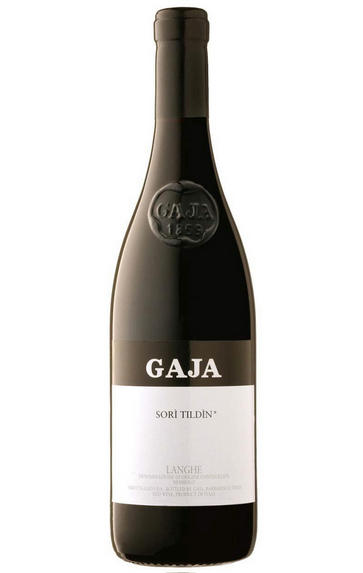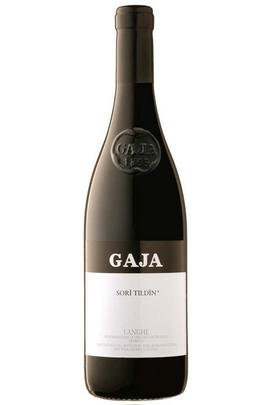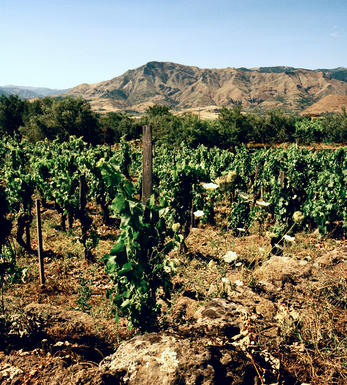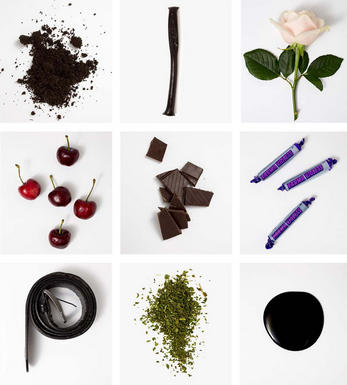
2013 Barbaresco, Sorì Tildìn, Gaja, Piedmont, Italy

Critics reviews
Monica Larner - 30/06/2016
Walter Speller - jancisrobinson.com, Oct 2016
About this WINE

Gaja
Angelo Gaja is Italy`s most renowned and dynamic wine personality and his impact on wine production in the last 30 years cannot be overestimated.
Angelo Gaja took over the family business in 1970 and, as he says: *The challenge was to maintain the basic power and depth of Nebbiolo while polishing the wines to give them richer colour, fuller fruit, better balance and a more refined style.'
In pursuit of this aim Gaja replanted many of the vineyards, installed temperature-controlled, stainless steel tanks, introduced the concept of ageing wines in small oak barrels and began releasing single vineyard Barbarescos. Most controversial of all, Gaja planted some Cabernet Sauvignon and Chardonnay on prime Barbaresco land.
Today Gaja has 101 hectares of vineyards divided into 32 separate plots and produces around 30,000 cases of wine a year. Gaja produces world-class wines that sell for world-class prices; his latest venture is in Tuscany where he has acquired an estate in Montalcino.

Barbaresco
The Piedmontese DOCG zone of Barbaresco is responsible for producing some of Italy’s finest wines. It occupies the same region and uses the same grape (Nebbiolo) as its bigger brother Barolo, but is a third of the size (only 640 hectares versus Barolo’s 1,700 hectares). It is also 50 years younger than Barolo, having produced wine labelled Barbaresco since 1890.
Barbaresco earned its DOCG after Barolo in 1980, largely thanks to the efforts of Angelo Gaja. The soils are lighter here than in Barolo – both in colour and weight – and more calcareous. The slopes are also less favourably situated and (relatively speaking) yield earlier-maturing yet extremely elegant wines that require less oak ageing (normally one year in oak plus six months in bottle). The appellation’s key districts are Barbaresco, Treiso, Neive and Alba.
Recommended producers: Cigliuti, Gaja, Marchesi di Gresy

Nebbiolo
Nebbiolo is the grape behind the Barolo and Barbaresco wines and is hardly ever seen outside the confines of Piedmont. It takes its name from "nebbia" which is Italian for fog, a frequent phenomenon in the region.
A notoriously pernickety grape, it requires sheltered south-facing sites and performs best on the well-drained calcareous marls to the north and south of Alba in the DOCG zones of Barbaresco and Barolo.
Langhe Nebbiolo is effectively the ‘second wine’ of Piedmont’s great Barolo & Barbarescos. This DOC is the only way Langhe producers can declassify their Barolo or Barbaresco fruit or wines to make an early-drinking style. Unlike Nebbiolo d’Alba, Langhe Nebbiolo can be cut with 15% other red indigenous varieties, such as Barbera or Dolcetto.
Nebbiolo flowers early and ripens late, so a long hang time, producing high levels of sugar, acidity and tannins; the challenge being to harvest the fruit with these three elements ripe and in balance. The best Barolos and Barbarescos are perfumed with aromas of tar, rose, mint, chocolate, liquorice and truffles. They age brilliantly and the very best need ten years to show at their best.


Buying options
Add to wishlist
Description
Lustrous mid ruby. Quite intense nose of red fruit and oak and perfectly integrated. Still quite closed and backward on the palate with bags of powdery tannins. Powerful structure on the finish. Very long and balanced, yet undeniably oaky for the moment.
Walter Speller - jancisrobinson.com, Oct 2016
wine at a glance
Delivery and quality guarantee